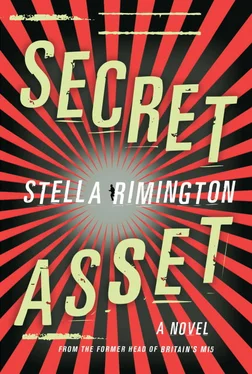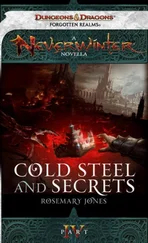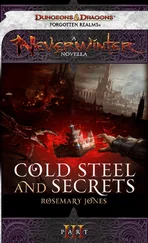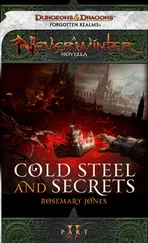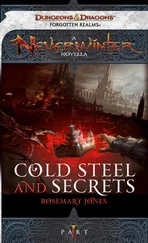Then Bashir saw a large van—the kind used to ferry policemen back and forth from football matches—stop directly across the far end of the side street, blocking his exit. He braked sharply just in time to swerve into a small road that circled behind the back of Keble College. Racing along behind the modern extensions at the back of the College, he negotiated the ninety-degree left turn with a small screech of his tyres. But he cursed out loud when he saw another police van pulling up to block off this side road as well. There was nothing for it: Bashir floored the accelerator, driving straight towards the police vehicle, then just short of it he threw the steering wheel abruptly right. His front tyre hit the high corner of the pavement and the van shot into the air, missing a passing girl by inches. She screamed, the noise filling the air like a siren, slowly dying away as the van landed with a heavy thump on Parks Road.
Bashir regained control and accelerated down the tree-lined street towards the Encaenia procession. It must have reached the Broad, he told himself. Mustn’t be late, mustn’t be late. The road was free of traffic but he forced himself to slow down as the speedometer reached sixty-five. He was worried he wouldn’t make the turn. He touched the brakes lightly once, then twice, and got ready. Out of the corner of his eye he saw Khaled grip the free end of the rope tightly.
The traffic light ahead was turning amber but he ignored it, praying no one would shoot out from Broad Street. Instead, ahead on his left, a student emerged from Holywell Street, riding a bicycle. As if in a film, a policeman came from nowhere and threw himself at the student, knocking him and his bicycle to the ground.
Before Bashir could fully take this in, he was in the junction, turning sharply right. He scraped inside the far pavement, just in front of the lower steps of the Clarendon Building, and struggled to aim the van towards the procession that should be heading straight towards him. He was going to drive along the pavement and then Khaled would pull the rope. The explosion would kill anyone within a hundred yards. That was what the Englishman had said. A hundred yards.
But the Broad was absolutely empty . There was no one on the pavement or on the street. No procession, no pedestrians, not even a student on a bicycle. It was like a ghost town.
Bashir began to panic as he felt a heavy thump against his front left tyre. What had he hit? Then almost simultaneously he felt the heavy whoomph of another tyre blowing. Suddenly he lost control of the steering.
The van skewed sharply left, in a curving skid propelling him directly towards the wall in front of the Sheldonian. Bashir knew in a flash that Khaled didn’t need to pull the rope. The impact alone would trigger the detonators, he thought.
Liz crouched with Charles Wetherby behind one of the police cars, taking cover as soon as she saw the first tyre shot out by the marks-men. She waited for an explosion, and covered her ears with her hands. Beside her, Wetherby spontaneously threw a protective arm around her shoulders.
There was a harsh, grating sound of metal hitting an immoveable object, and a muffled thump which seemed half sound, half vibration.
And then there was silence. Liz began to raise her head but Wetherby pushed her down again. “Wait,” he said. “Just in case.” But there was no explosion, and as the pressure from his arm eased, Liz peered cautiously over the bonnet of the police car.
The van had hit the retaining wall and been thrown upwards, where it lay against the tall iron railings, pointing towards the sky, its front tyres spinning in the air.
Matheson moved out from the protection of the cars and began shouting orders. A fire engine appeared from Debenhams behind them. Avoiding the forbidding bollards at that end of the Broad, it trundled heavily up along the pavement by the shops, squeezing slowly through the narrow gap before accelerating, siren now blaring, towards the van.
As it arrived, armed policemen emerged from the crannies and doorways where they had sheltered, and moved towards the crashed vehicle. A Special Branch officer in plain clothes got to the van first, reached up and tugged at the driver’s door, fruitlessly. He’s brave, thought Liz, since there was a petrol tank that could still detonate.
She came out from behind the car and began to walk with Wetherby cautiously towards the van. Dave Armstrong joined them, breathless and looking stunned. “What was that about?” he asked. Neither Liz nor Wetherby responded.
As they moved down the Broad, firemen were shooting powerful jets of foam over the van.
Liz said, “I don’t understand why Tom made the phone call.”
“Well he didn’t warn us about the van,” said Dave sharply.
Wetherby shrugged. “Perhaps he felt he didn’t need to.”
Liz looked at him inquiringly, just as Matheson intercepted them. “There were two men in the van. They’re both dead,” he announced.
“Killed by the crash?” asked Wetherby.
Matheson nodded. “They had a fertiliser bomb in the back of the van, but it didn’t go off. It’s too early to say for sure, but it looks as if the detonators didn’t work.”
“I’m not sure they were meant to,” said Wetherby slowly.
Liz looked at him again; Wetherby’s expression seemed entirely enigmatic. “You think they knew there wasn’t going to be an explosion?” she asked.
“No, but I think Tom did,” said Wetherby. “You said yourself that you couldn’t understand why he’d want to kill so many innocent people. He wanted the van to get through, but he knew it wasn’t going to blow up.”
“Why would he do that?” asked Liz. “What would the point be?”
Wetherby shrugged. “I suppose to demonstrate it could be done. To show us up as dangerously incompetent.” He pointed up the street, where Liz could see a television crew advancing. “That may be a local crew,” said Wetherby, “but you can be confident their footage is going to make the national news this evening. None of us is going to look good after that kind of exposure.”
“So that’s what he wanted?” asked Liz. “To destroy the Service’s reputation?”
“Something like that.”
“Hang on,” interrupted Dave. “He didn’t care if the two blokes died, did he?” he asked impatiently, gesturing towards the crashed van.
“Of course he didn’t,” said Wetherby. He gave a mirthless laugh. “I’m not defending Tom. I’m just saying I think his objective was more subtle than we gave him credit for. And thank God.” He looked around the Broad, full of policemen standing by while the firemen continued to cover the van with foam. “Think how many people could have been killed. If Tom hadn’t phoned, this place would have been full of people…”
They were standing in the middle of the Broad, only yards from the van. Liz looked around, still amazed that there had been no explosion, and no casualties other than the driver and his passenger. Then along the high railings above the wall which the van had hit, she saw that two stone pedestals were empty—their “Roman Emperor” heads had gone. It was surreal.
Wetherby pointed at some smashed fragments littering the Broad. He said wryly, “Somehow I don’t think those are the only heads that are going to roll.”
The policeman was moving everyone away from the windows, though Tom knew it wasn’t necessary. They were led to the vast downstairs room of the bookshop and made to stay there for almost half an hour. He kept a careful eye on his watch, and after eight minutes smiled involuntarily as the countdown finally ended. Three years, he told himself, I planned this for three years—and now at last the moment’s come.
Читать дальше
